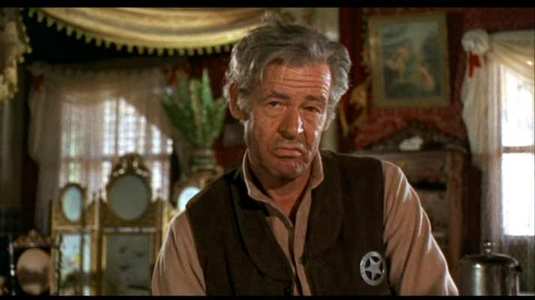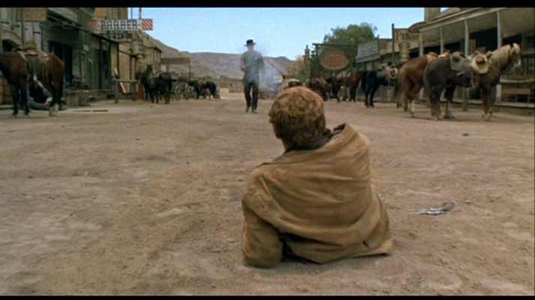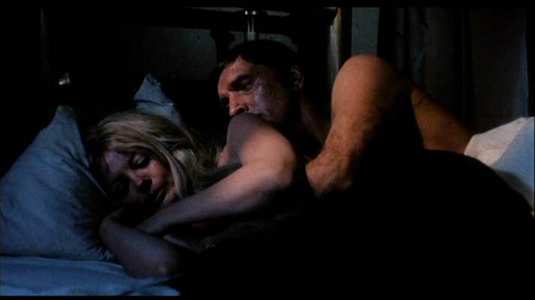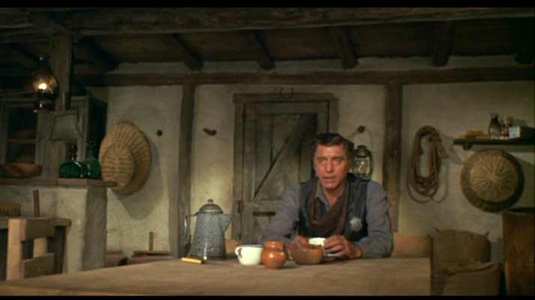Review of Lawman
Introduction
Never judge a book by its cover - or a DVD for that matter. Reviewing a Western by irritating insurance peddling hobbit Michael Winner wasn`t a particularly enticing prospect. But maybe with such low expectations the only way for my mood was up with this one - and in truth, this gritty, authentic feeling frontier-town Western is actually rather good.
`Lawman` is an early 1970`s re-make of the 1955 Robert Mitchum movie, `Man with a Gun` - though this telling is grittier, dirtier, meaner and tougher. It`s also surprisingly thought provoking too, which now I think about it, is a feature of many good movies in the genre. In fact, a kind assessment of this particular movie might even go so far as suggesting that it paved the way for a new breed of Western that culminated in the bleak Eastwood triumph, `The Unforgiven` - though maybe this surpassing of initial expectations is just going to my head.
It boasts a really good cast. There`s Burt Lancaster, packing a bit of a paunch but turning in an entirely convincing, almost tragic portrayal of Maddox, the Lawman of the title. He`s a zero-tolerance, almost Judge Dredd type Lawman (he actually says `I am the Law` more than once) who believes that rules are not made for breaking.
When a group of marauding drunken cow-hands let off too much steam in his home town, leaving an unintentional silver souvenir lodged in the brain of one of its citizens, Maddox takes to the road to bring the whole posse to justice. The cowhands, like all the citizens of a neighbouring town, are in the pay of Bronson, a wealthy ranch-owner, played magnificently by Lee J. Cobb. Bronson is a complex man; tough, brutal, domineering - and yet there is a dark, brooding, almost philosophical side to his soul that displays an intelligence beyond that of his steer-steering peers.
Worthy of a mention too is Robert Ryan, playing a local sheriff in the pay of his master; corrupted, emasculated and empty. Once a Civil War hero, he has let the winds of change direct his destiny, unlike Maddox who remains steadfast until the brutal end. We see that Ryan admires Maddox`s determination and high-moral stance, but it`s clear that, as a washed out cynic, that he also recognises the complete futility of his position too.
This is a violent film, with un-sentimental, cold-killings reflecting the harsh realities of frontier life.
At the time of its release, there was great sensation about the scene that finds Lancaster in bed with a topless lover, though I suspect that it won`t have anyone throwing their TV dinner into the air in shock today.
Stylistically it`s a tightly directed piece, marred only by the trombone-playing actions of the lead cameraman, with constant, near nauseating zooms in and out to emphasise moments of high drama. This was a short-lived trend and is a disappointing aspect of the film today.
Filmed on location in Durango, Mexico (a favourite location for Westerns of the period that preceded this), the dusty exteriors are incredibly convincing. The tale unfolds in a horribly predictable way, though its conclusion is fairly disturbing.
For those that have an interest in these things, Robert Duvall appears (about a year before `The Godfather`), as do a bearded Ralph White (The Waltons) and John Hillerman (Magnum, PI), but all in minor supporting roles.

Video
Astoundingly poor reproduction here. It`s criminal that no one at MGM could be bothered to locate a better print. Constant sparkles, scratches, blobs and frame-cuts mar the enjoyment of what is actually a very decent movie. Cynical studios exploiting back catalogue please note: we do notice, and we do care - and we vote with our wallets. Until someone summons up the energy to locate better print, or clean this one up, I really wouldn`t bother.

Audio
No one would produce a feature on this scale today without some serious audio post-production on the wide sequences. Here the sound-stage wide shots have distant, thin and echoey sound, barely audible on one or two occasions. This is inter-cut with the closer, warmer sound of the closer shots with no shame. Perhaps the problem is accentuated when viewing at home. After all, cinemas in the seventies were often fairly hard-surfaced echo ridden environments in their own right. But it dates the film, and really mars the movie. Apart from that, there`s a great score and effects are used sparingly but to great effect.

Features
None save a wide selection of language tracks and sub-titles.

Conclusion
Now, I`m not a big admirer of Mr. Winner`s body of work, least of all the abominable `Death Wish` series and his recent appearances in those irritating insurance adverts which leave you wanting to punch him right on the end of that smug hooter, but… this is actually a surprisingly good movie and a credit to its genre. With a strong cast, set in highly convincing locations, playing out a singularly tough and tragic tale, it`s a very entertaining and thought-provoking movie. Good enough, perhaps, to forgive those endless fast zooms (popular at the time), and some fairly shoddy sound on the studio wide-shots. What is unforgivable though is the abominable state of the print. It should never have been released in this shoddy state, and if I were Michael Winner I`d put the crummy and demeaning advertising career on temporary hold and get Mr. Bronson on board to go sort out whoever was responsible. This film deserves better.
Your Opinions and Comments
Be the first to post a comment!